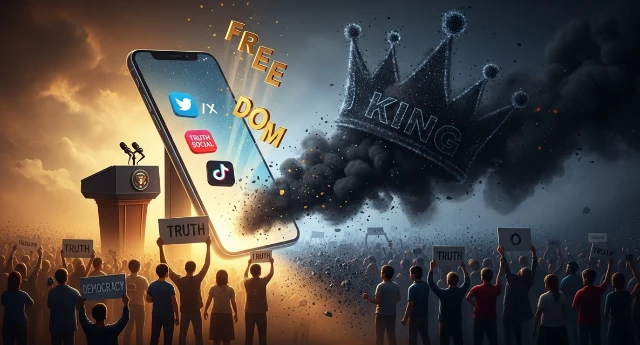
Between 'Likes' and National Dignity: Where Should We Draw the Line for a President's Social Media?
The recent controversial social media posts by former President Donald Trump, depicting himself as a king and mocking opponents, have reignited a critical debate: where should the line be drawn for a president's online expression? As global leaders increasingly use social media for direct communication, the boundary between their personal freedom of expression and their official responsibility as heads of state is blurring, impacting national dignity and democratic principles. ● Opinion 1 (Pro-Direct Communication): Proponents argue that unfiltered social media allows leaders to bypass traditional media, conveying their message directly and authentically. This raw communication style resonates with voters tired of polished rhetoric, effectively mobilizing support. Utilizing memes and satire is seen as a strategic, modern approach to engage the electorate, and over-regulating it is deemed an elitist idea. ● Opinion 2 (Con-Responsible Leadership): Critics contend that a president, as a national symbol, must uphold a higher standard. Every post carries historical and diplomatic weight. Careless language or misinformation can erode national credibility and dignity. Dehumanizing opponents risks inciting social division and hatred, undermining democratic debate. A president's social media should be a responsible public tool, not a platform for fleeting emotions. ★ Core Issues: * Individual Freedom vs. Official Responsibility: Balancing a president's constitutional right to free speech with the symbolic duties of the head of state. * Direct Communication's Utility vs. Social Cohesion: Weighing the benefits of direct engagement against the risk of deepening societal division. * Political Memes vs. Discourse Integrity: Assessing how the popular use of short, provocative content impacts the depth of public discourse and deliberative democracy.
flo-mfw
Views 40 •